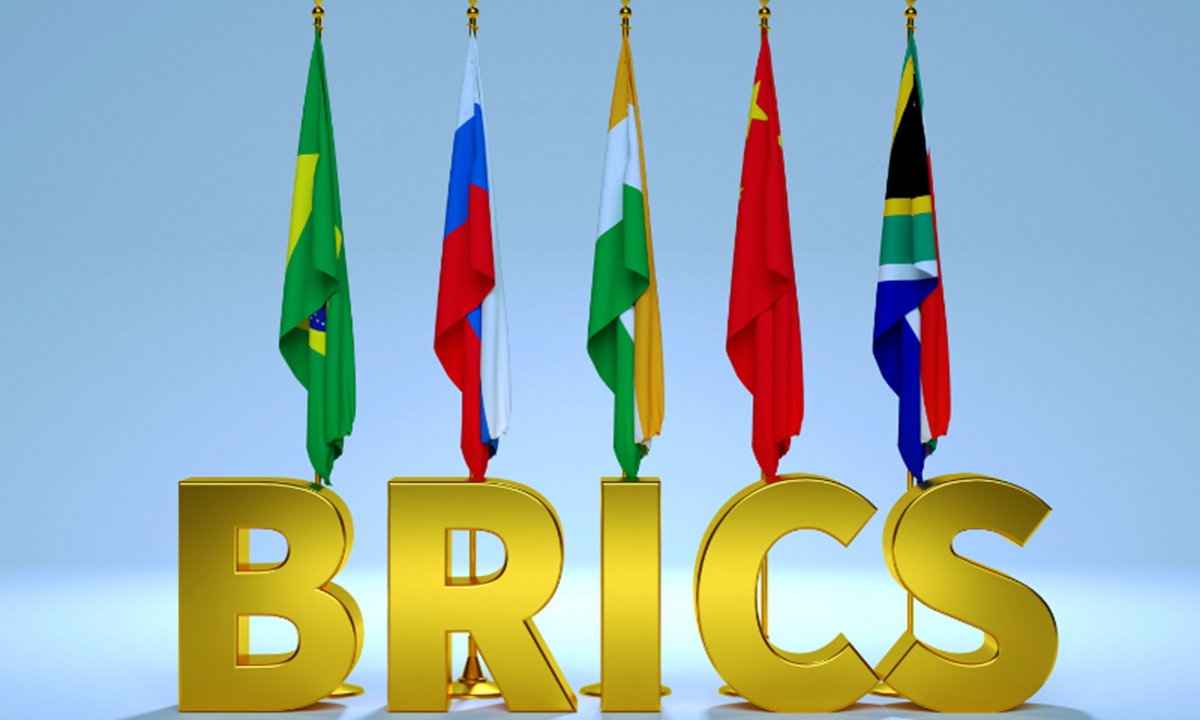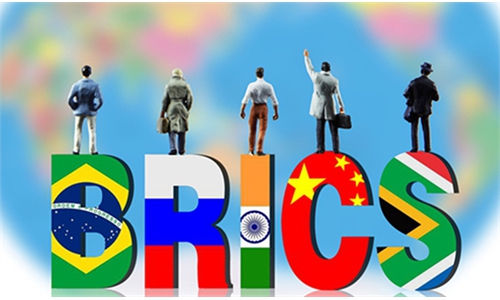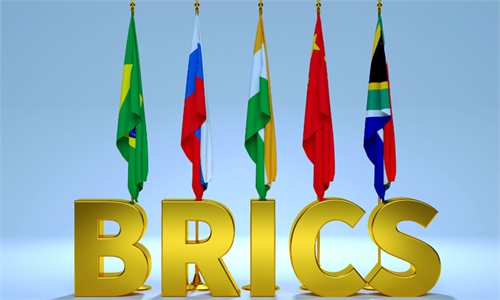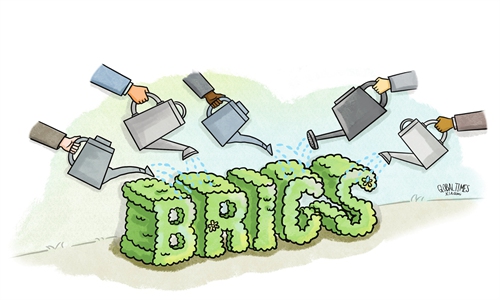
BRICS Photo:VCG
More countries aspire to join the BRICS, with the latest being the South American nation of Venezuela, which officially applied to join the organization and "is expecting a positive decision on the matter."
The BRICS are "the driving force behind the emergence of the multipolar world," and now "Venezuela has made its proposal for entry," Venezuelan President Nicolas Maduro said on Monday during his regular TV show, broadcast by the state-run Venezolana de Television TV.
Since its inception in 2006, the BRICS, featuring five major emerging economies - Brazil, Russia, India, China and South Africa - has become an important global platform for cooperation among developing countries.
By upholding multilateralism, the BRICS mechanism has played a significant role in recent years, both in terms of international influence and global governance, Song Wei, a professor at the school of international relations and diplomacy at Beijing Foreign Studies University, told the Global Times on Wednesday.
It has evolved into a mature international framework capable of articulating its own viewpoints and ideas, Song said
During the 14th BRICS Summit in June 2022, the leaders of the five countries agreed to expand the group's members. According to media reports, the topic of membership expansion was to be included in the upcoming BRICS Summit's agenda in August.
Nearly 20 countries are now applying to join the group, Russian media reports said in June, citing Russian Deputy Foreign Minister Sergei Ryabkov.
Latin America and the Caribbean region are the areas with the highest number of applicants. In addition to Venezuela, there are also countries "in line" to apply for membership, including Argentina, Bolivia, Cuba, Honduras and Mexico.
Saudi Arabia, the United Arab Emirates, Nigeria and other oil-producing countries have also applied to join the group.
Egypt has submitted an application as well, given its interest in "de-dollarization", Russian news agency TASS reported, citing Russian Ambassador to Egypt Georgy Borisenko.
In recent years, the US has leveraged the dominance of the US dollar to establish a US-led framework for economic and financial governance. Whenever the US faces a domestic fiscal or financial crisis, it addresses it by printing more dollars, passing the burden to the rest of the world, Song said.
It places the economic security of developing nations in peril, which also explains why an increasing number of countries are seeking more diverse payment systems to reduce their dependence on the US dollar, Song noted.
At the 14th BRICS Summit in 2022, the members agreed to promote the development of BRICS Local Currency Bond Markets and establish a BRICS Local Currency Bond Fund, as a means of contributing to the capital sustainability of financing in BRICS countries, and boosting the development of BRICS bond markets.
By fostering greater consensus, the aim of the group is to ensure that global governance takes into account the voices of more developing countries, helping address the development needs of a larger number of the less developed economies in the world, Song said.



